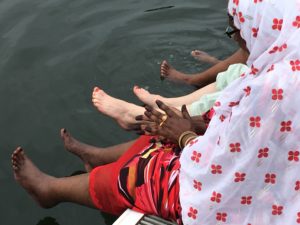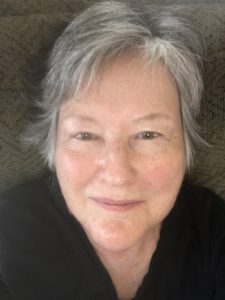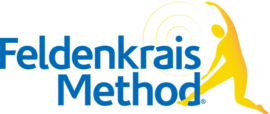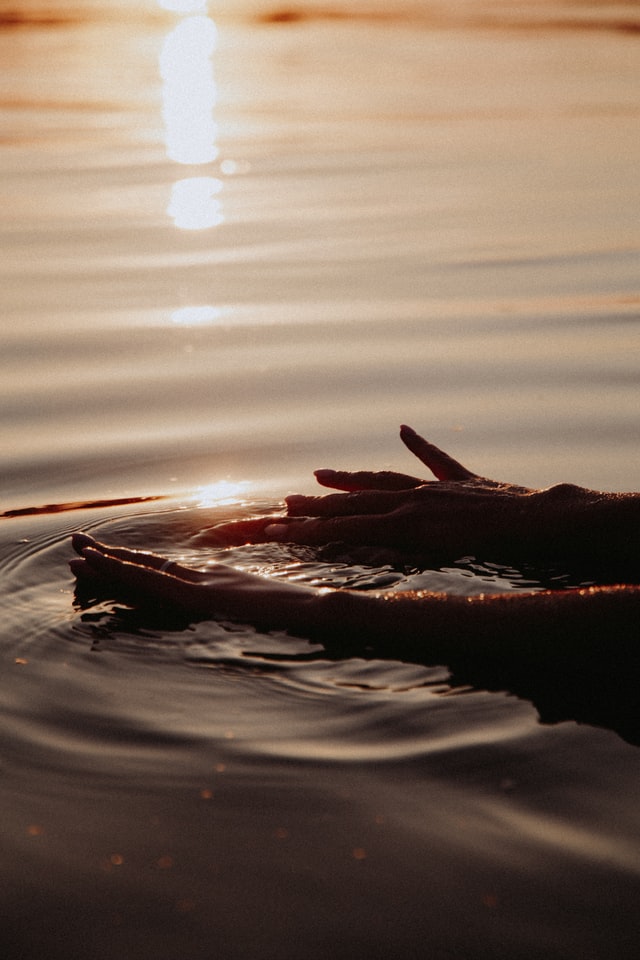By Gail Thompson

Photo by the author.
These times have highlighted the extent to which ethnic communities are segregated in our society, and Feldenkrais® practitioners are rightfully concerned about serving all of our communities. As an anthropologist, I am aware of the richness in other cultures that we can experience through participation and observation. But it’s difficult for all of us to make contact and serve those who are different from us. I have had the good fortune to engage with the Somali community in the Seattle area.
Some 30,000 Somali people have come to live in the Puget Sound area. Many Somali women have experienced physical trauma and emotional pain from fleeing war, relocating thousands of miles from their homeland, and caring for their families in an unfamiliar environment and a culture that isn’t just new but also often insufficiently welcoming and socially isolating.
Harborview Medical Center (HMC) medical providers have reported many Somali women complaining of musculoskeletal pain and headaches that were not alleviated by prescribing medication, and adherence with physical therapy has been poor. Some patients express symptoms of depression and PTSD but are uncomfortable with psychotropic medications and psychotherapy based on the cultural stigmatization of mental health issues.
A now-retired HMC nurse collaborated with a Somali interpreter/cultural mediator to develop the Daryel program and continues to direct it. “Daryel” means wellness in Somali. Volunteers include Jewish, Christian, and nonreligious women who wish to provide holistic and culturally competent care to connect, improve, and enjoy relations with our Somali community.
Similar to Somali women’s experience with massage therapy, Feldenkrais Method individual lessons (Functional Integration® lessons), when given by a female, constitute a familiar and cultural congruent modality. Likewise, the method is appropriate for the women’s many layers of modest clothing and breaks needed for prayers. Daryel creates a safe and respectful space for women ranging in age from their 30s through 80s. Harborview Medical Center provides an outstanding Somali coordinator/ interpreter for the program. Anab Abdullahi, who was a physician in Somalia, coordinates massage practitioners, a yoga teacher, and others who give health education talks, prepare lunch or snacks, and support an annual summer field trip. Our cultural exchange includes chai (tea), traditional foods, occasional potlucks, and an annual summer field trip to a nearby beach community with walks, lunch, song, and dance.
I started volunteering at Daryel in 2011, following a newspaper article about the program that inspired a desire to connect with the community and practice my developing Functional Integration skills. I had fears about interacting with African refugees, the difficulties of language differences, and concerns about the shortcomings of my developing Feldenkrais® skills. Being able to use the Method to investigate my concerns with curiosity, sit with uncertainty, and persist were essential to joining Daryel.
With the support of the volunteers, I gave a demonstration with one of the Somali women, all of whom viewed the idea with some skepticism. Over time, some women have tried Feldenkrais lessons, with varying degrees of acceptance. Somali women’s previous idea of massage was of something that used pain to help them feel better. While their cultural preference is for modalities such as deep massage, we have needed to emphasize the gentle nature of the Feldenkrais Method. My commitment to attend regularly and build relationships has been the means to gaining acceptance for the method. In the last nine years, I have attended most Sundays, giving two Functional Integration lessons each time.
These lessons aim to address a wide range of concerns and help women improve their movement, activities, and well-being. While the Feldenkrais Method can help people change, the time needed varies depending on cultural conditions and individual inclinations. One woman with fibromyalgia and arthritis has reported less pain and better movement. Another has said she feels looser and healthier after mornings at Daryel.
Owing to a cultural preference for more vigorous movement and a lack of sufficient time with our interpreter, group classes (Awareness Through Movement® lessons) have not yet proved feasible. Language differences also minimize verbal communication during individual lessons, placing a premium on somatic learning. The lessons focus the women’s attention on connections between their brains and bodies, which allow the women the time as well as mental and physical space to be more in touch with themselves. Along with the other activities of Daryel, Feldenkrais lessons can help facilitate the women’s connections with each other and the community.
Most of my lessons with individual women help them improve their walking, sitting, and other activities. One unusual short lesson occurred to meet an emergency on a summer field trip to a beach community on Puget Sound where one nurse lives. An elder Somali woman experienced a painful attack in a leg with elephantiasis — this often-lifelong condition occurs when lymph movement is blocked and a limb becomes enlarged and sometimes painful, with leathery skin; my training in anthropology helped me recognize it. I was able to take her leg in small, slow movements in various directions to engage her attention and help relieve her distress until our director was able to give medication. While she has few English words and I have almost no Somali, we share the language of movement and feeling. I could sense her relaxing, calming, and regaining less painful movement in response to my work, and she thanked me for helping her through this episode.
During the Covid-19 pandemic months, in-person sessions have been suspended but several Daryel women and volunteers meet online Sunday mornings to chat and practice yoga. It’s comforting for me to maintain our connection each week.
My goal in giving Functional Integration lessons at Daryel has been to use my retirement to help others. What I didn’t realize was how much more flexible my mind would become in learning about Somali culture, the new Somali and volunteer friends I would find, and the enjoyment we all would have in a community of touch and movement.
——————
Gail Thompson, Ph.D., is a mostly retired anthropologist, who trained in the Feldenkrais Method, graduating in 2012 and is now deepening her learning in the Feldenkrais Training Academy. Her other volunteer work includes teaching an online Awareness Through Movement Class to seniors in the Northeast Seattle Together (NEST) community.


